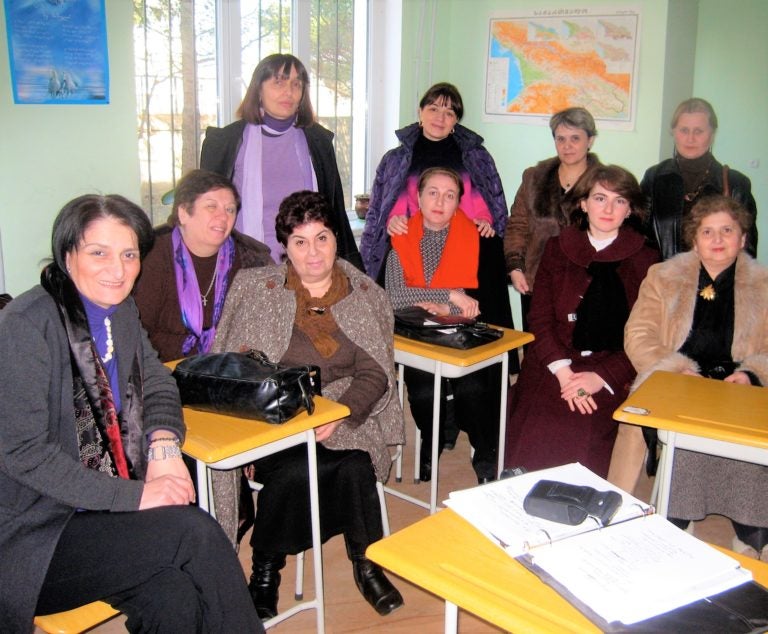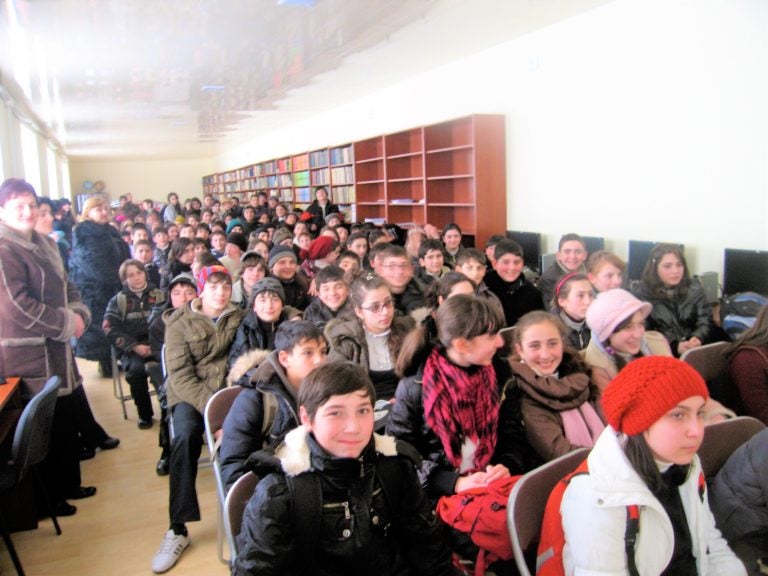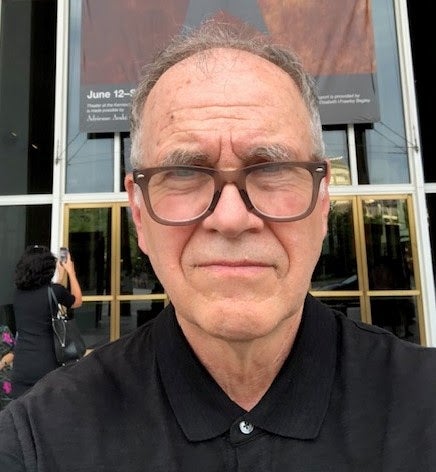“You have to be humble. Going in with the attitude that ‘I am an expert and this is what you have to do’ is counterproductive.”
Dr. Gregory Orr always has tried-and-true tricks up his sleeve to make the most of his work as a Specialist. Take, for example, the needs analysis he did in Georgia in 2010. The national Ministry of Education had a brand-new minister who wanted to look at the state of English teaching throughout the country – no small order! The method Orr used is a good example of how he gets at the clearest possible picture in a short amount of time. Needs assessments, he explained, require an honest demonstration of what is going on in the classroom, not just which books and materials are being used.
Paradoxically, the task is made more difficult when his arrival is announced to stakeholders in advance, as Orr discovered during his five-week road trip to both “cities and boonies” throughout Georgia. Orr, a representative from the Embassy, and a ministry official crisscrossed the country visiting schools, resource centers, universities, libraries, and English teachers’ associations.
It seemed like a good plan, except Orr soon realized that “because schools were alerted that these big guys were coming, they felt they needed to put on a good show for us.” Understandably, teachers wanted to look good in front of administrators and they may have altered their usual curriculum or teaching lessons.

To compensate, the group added a couple of impromptu school visits. “We would go and knock on their door and say, ‘We’re here. Can we visit an English class and the library?’” These surprise visits meant there was no chance to create a “Potemkin Village,” which is what other schools were doing; there was simply no time to mount a make-believe façade for the official visitors.
Orr quickly found that the pressing needs of Georgian schools went beyond instructional issues. There were schools without electricity that were so cold that he had to find a sunny place in the classroom to withstand the February chill. The schools always needed more books, which were so precious that they had to be guarded carefully. Textbooks might be used during the class, but they had to be returned to the teacher who would lock them up until the next day. Libraries often allowed the use of books on their premises but forbade taking them home.
Furthermore, without electricity – and therefore no internet, the computers at schools lucky enough to have them were worthless. “There are so many resources [online]. But without classroom internet, teachers had to ask pupils to search for certain materials at home and bring them to class.” Nevertheless, he was continually impressed with the Georgian teachers’ ingenuity and perseverance in dealing with the paucity of basic infrastructure.
Orr also was eager to interview Peace Corps volunteers whenever possible. As a former Peace Corps volunteer in Benin, he knew they would have a bead on the issues that teachers may not have wanted to air. “Truancy was a big one,” he said. To address that problem, Orr suggested following several best practices he encountered in a few Georgian schools, for example, one school created a Harry Potter book club, a movie club, and an Olympiad, so students could work toward something outside of class. “When we took into consideration the interests of the students, participation increased and truancy declined,” one teacher reported.

The U.S. Embassy also benefited directly from traveling with Orr. The public affairs assistant who accompanied Orr and the ministry official was well versed in the State Department’s many exchange programs, fellowships, and international visitors’ programs, and at many of their stops, he spoke to teachers, teacher trainers, and students about these opportunities. At the end of the five-week project, Orr met with the ambassador, public affairs officer, and public affairs staff, to present his recommendations for programs, including an annotated list of key individuals he had met and who would profit from participation in State Department opportunities. Orr’s role was critical, as was theirs: “I could make suggestions, but it was the Embassy’s decision on the next steps.” Orr’s 50-page final report was essentially a roadmap and model for the Embassy to use in the future.
Orr summed up what he learned from his work as a Specialist:
- You have to be humble. Going in with the attitude that “I am an expert and this is what you have to do” is counterproductive.
- You also have to be realistic. Teachers know what they lack, need, and want, and they also know what is feasible. Your role is to work with them to see how you can best support and supplement what they are doing now in the classroom.
- And you have to give them hope that their voices have been heard, that their work is valued, and that there are initiatives underway to provide them better tools, resources, and opportunities.

Gregory John Orr began his international career teaching English in Kyoto, Japan, and later in Benin, West Africa, with the Peace Corps. While pursuing a Ph.D. in Applied Linguistics at UCLA, he broadened his African experience, first as a Fulbright doctoral researcher in Malawi and then as a USIA English Teaching Specialist in the Cape Verde Islands and South Africa. When he joined the Foreign Service as an English Teaching Officer for USIA in 1987, he reoriented his career focus to Central and Eastern Europe with postings in Budapest, Bratislava, Kiev and Moscow. After retiring from the Foreign Service in 2006, he became involved again with the English Specialist program in Chile and the Republic of Georgia.
